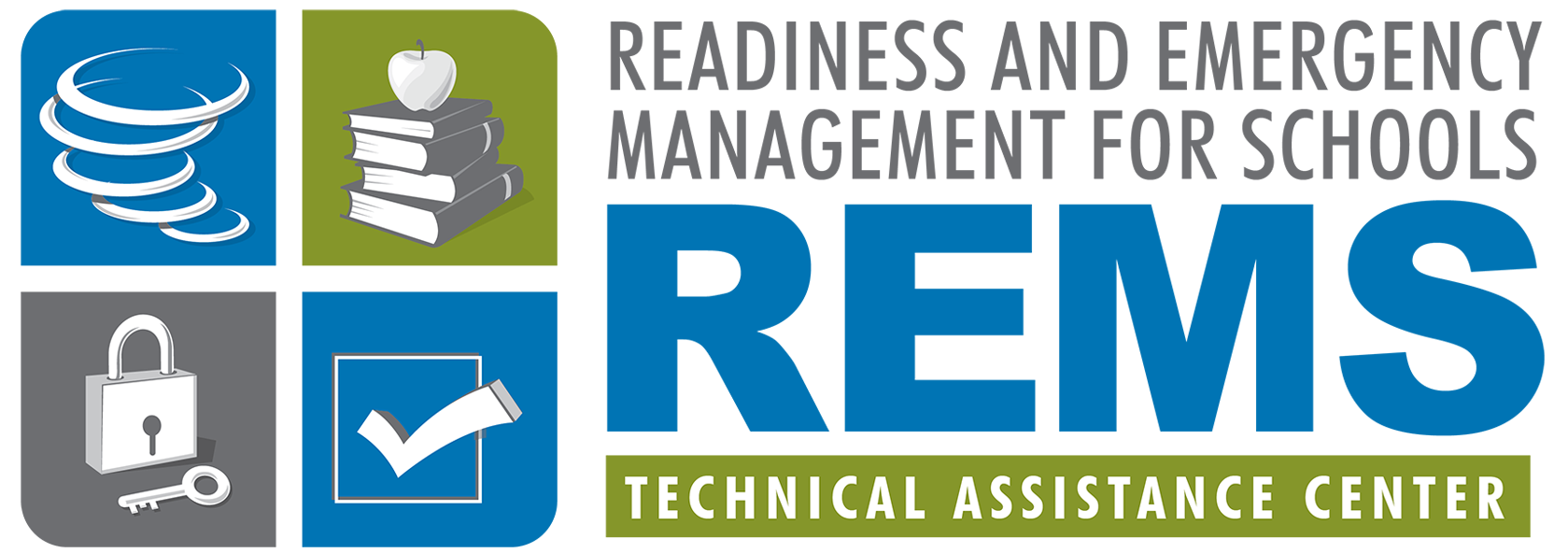Share Your Feedback
The REMS TA Center seeks your feedback to ensure that the Website is continually enhanced to meet your needs.
MODEL SCHOOL DISTRICT POLICIES
Understanding that texts, emails, and social media posts are the way most people exchange information today, many school administrators encourage teachers to use these technologies to communicate with students and parents related to academic matters (Starr, 2009). District policies and codes of conduct, however, can include cyber security, cyber safety, and personal use guidelines that outline appropriate and inappropriate online behaviors and interactions — specifying, for example, that teachers should not post on personal sites during school hours or while using school- or district-owned devices. Beyond working with general counsel and providing guidelines for electronic communications and online interactions, these policies and codes of conduct can address whether or not school personnel should share with students personal social media pages (as well as pages on other online platforms), email addresses, and cell phone numbers (Maxwell, 2007). Such policies — along with training, mentoring, and other professional development activities — are particularly important for young teachers, who may have less traditional concepts of privacy and professional boundaries (Preston, 2011).
The Virginia Board of Education (2011), in its efforts to prevent adult sexual misconduct, stresses that district policies in their state should ensure that electronic and online interactions with students be
- transparent;
- accessible to supervisors and parents; and
- professional in content and tone.
Other states may wish to adopt a similar approach.
| Make interactions between students and school personnel… | To this end… |
|---|---|
| Transparent |
|
| Accessible to supervisors and parents |
|
| Professional in content and tone |
|
In the spirit of transparency, experts recommend that educators using social media pages, blogs, and other platforms with their classes also share them with administrators, supervisors, and parents (National Center for Missing and Exploited Children [NCMEC], 2012). When explaining the use of such platforms to students, educators should outline acceptable language and content and warn students that online communications are being monitored and saved.
Educators should be encouraged to consider the subject matter, content, purpose, timing, and frequency of their communications with students, and understand that concealing communications from supervisors and/or parents can result in disciplinary consequences. School policies should be developed and carefully followed related to inappropriate interactions for staff members and students on Facebook, Instagram, and Twitter, and when texting or emailing images. This protects not only the students, but lessens the opportunity for false allegations against educators or the appearance of misconduct. Similarly, schools should have protocols for teachers to follow when students disclose potentially inappropriate content through online platforms and/or electronic communications.
In New Jersey, school districts require that all electronic contact with students be carried out through the district’s network and phone system, with employees having no expectation of privacy. The policy also stipulates that employees must not share personal phone numbers, unless permission is received from the school principal. Further, electronic communications must be sent to all students, unless the information is confidential or specifically addresses issues pertaining to an individual student (New Jersey School Boards Association, 2014).
Schools may consider encouraging teachers to avoid “friending” students and parents on social media and image-sharing sites, blogs, and other online platforms. The use of privacy settings on social media sites, blogs, image-sharing sites, and other online communication tools, and a policy of not “friending” colleagues, students, and parents may help teachers separate their personal and professional “digital lives” (NCMEC, 2012). This can help teachers separate their personal digital lives from their professional digital lives. Along these lines, schools can consider using only online platforms and learning management systems specifically authorized by the school or school district.
Besides encouraging educators to keep communications with students transparent, schools can consider having administrative, instructional, and technical personnel work in tandem with parents to decide on guidance and best practices for electronic and social media interactions.


